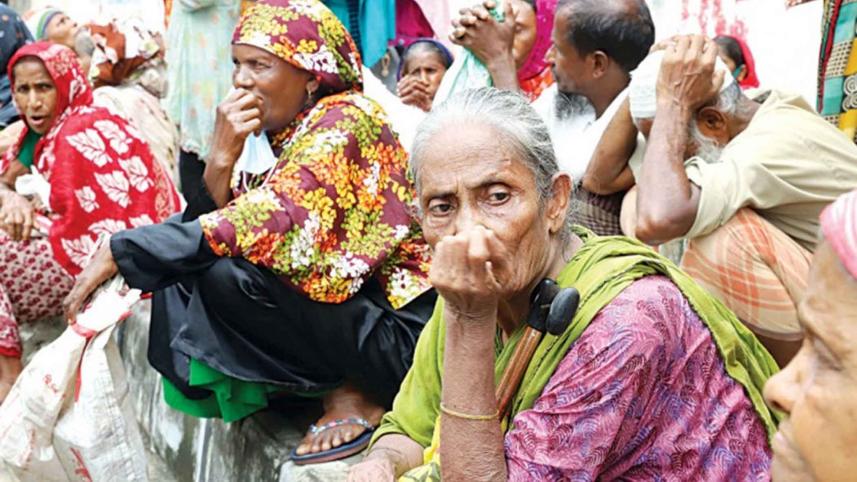Old age allowance simply not enough to live on

It is a disheartening fact that, while the government does provide allowances to certain vulnerable groups within the population, the amount is never enough to sustain them properly. A report by this daily has highlighted how dire the situation is for those who have no secondary sources of income or any support from close ones, and must rely solely on the government allowance for their survival. Shamsul Huda, an elderly man from Rajshahi, resides in a tiny and unstable tin shack, which used to be a tea stall (and his source of income). Being too old to work now, he must rely on his children for food and his medical bills. How much does the government allowance contribute to this? Only Tk 500 per month (paid at three-month intervals), which Huda would use up at once on the two inhalers that he needs.
But this is one story of one elderly man who is barely scraping by. And to think that the allowance has remained at Tk 500 since 2017, despite the prices of commodities increasing by so much over the last one year alone. Essentials such as cooking oil, rice, lentils, and some vegetables have been getting out of reach for many families. It is unrealistic to think that Tk 1,500 would be enough to help a person sustain themselves for three months, when even people with a monthly income are now struggling to make ends meet.
In the current fiscal year, the government allocated Tk 39,637 crore for cash transfer programmes, which include providing allowance to the elderly, widowed, distressed and destitute women, and financially insolvent people with disabilities, as well as for the pensions of retired government employees and their families.
While something is better than nothing, the government must commit to their safety net programmes by providing enough to each beneficiary to support their survival. We agree with experts that the amount of allocated allowance for vulnerable persons must be at least doubled in the budget for the upcoming 2022-23 fiscal year. Authorities must also bring more people under these cash transfer programmes—namely widows, oppressed women and persons with disabilities. It should also be ensured that not only are beneficiaries from all upazilas covered under these programmes, but that the urban poor—whose number has increased significantly since the pandemic began—are also receiving substantive monetary assistance.



 For all latest news, follow The Daily Star's Google News channel.
For all latest news, follow The Daily Star's Google News channel.
Comments